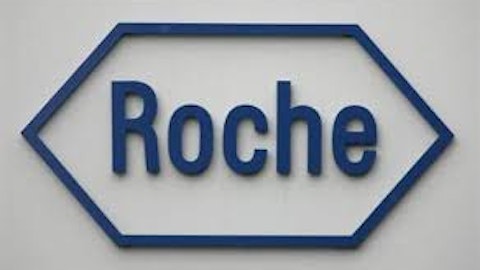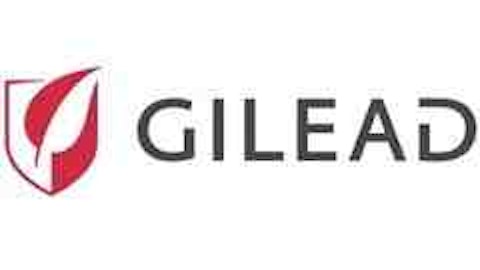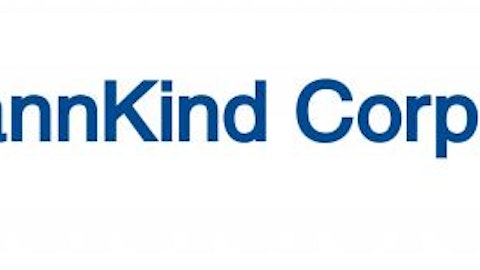Top beef producer Tyson Foods, Inc. (NYSE:TSN) has decided to stop buying cattle that are fed the growth additive Zilmax, produced by Merck & Co., Inc. (NYSE:MRK). Tyson Foods, Inc. (NYSE:TSN) notified its cattle suppliers that it was concerned about certain animals not being able to walk and showing other signs of lameness. The specific cause of the problem hasn’t been identified, but some animal experts have noted the possibility that the use of Zilmax could be the reason.
Zilmax is part of a group of drugs called beta-agonists, and cattle feeders use the drug to rapidly increase weight gain in animals. Eliminating the additive from cattle feed will lead to smaller animals that produce less beef. Less beef available for sale could lead to higher prices; live cattle futures rose recently to their highest levels in three months.
Along with Tyson Foods, Inc. (NYSE:TSN), Smithfield Foods, Inc. (NYSE:SFD) has stopped using another beta-agonist called Optaflexx made by Eli Lilly & Co. (NYSE:LLY)‘s Elanco animal health division. Unlike Zilmax, Optaflexx uses the drug ractopamine, which Smithfield Foods, Inc. (NYSE:SFD) has stopped feeding to its pigs. For now, Tyson Foods, Inc. (NYSE:TSN) and Smithfield Foods don’t appear to be starting a trend in the industry as other meat producers like Cargill and National Beef Packing are continuing to feed beta-agonists to their animals.
Animal health or export sales?
For meat producers, the economic downside of lower-weight animals is that the cost of raising these animals rises. However, suspending these drugs can boost exports, since several countries have banned the purchase of U.S. beef, pork, and turkey due to the use of beta-agonists.
Smithfield Foods suspended its use of Optaflexx to gain access to China’s growing market for imported pork. In May, the company signed a merger agreement with Shuanghui International, China’s largest meat processing company, and the transaction is expected to close in the second half of 2013.
Tyson Foods, Inc. (NYSE:TSN) had losses in its China business due to the avian flu outbreak. Demand has improved since the outbreak and is expected to return to normal. The company experienced reduced pork exports in the third quarter and next year expects a reduction of 2% to 3% in its beef segment. Hog supplies are predicted to be flat next year.
For now, China has not banned U.S. meat treated with Zilmax but has banned meat treated with Optaflexx. Despite the current policy, eliminating Zilmax from its supply chain may help Tyson Foods, Inc. (NYSE:TSN) expand its exports to the nation.
For fiscal 2013, Smithfield Foods reported lower pork exports by double digits in most major markets in the fourth quarter. Lower pork volumes shipped to China and Russia negatively affected pork production and the company’s fresh-pork business during the fourth quarter. For the year, fresh-pork operating margins decreased 3%, and hog-production operating margins decreased 4%. The company expects the loosening of export- market restrictions and higher contributions from its international meat-processing business to impact long-term growth.
Big pharma
Zilmax, manufactured by Merck & Co., Inc. (NYSE:MRK), is considered a more potent drug than its rival Optaflexx. When the recommended dosage is fed to a head of cattle for 20 days, the animal can add 24 to 33 pounds of lean muscle. After Tyson Foods announced that it would suspend purchases of cattle that were fed the drug, Merck & Co., Inc. (NYSE:MRK) stated it was working with Tyson to identify the cause of the problem and stood by the safety of its product. Shortly thereafter, Merck & Co., Inc. (NYSE:MRK) suspended sales of Zilmax and has assembled a research team to design a new study that will evaluate the drug’s safety.
Merck & Co., Inc. (NYSE:MRK) reported $1.7 billion in revenue from its animal-health division for the first half of the year. Last month, the company reported disappointing quarterly revenue affected by lower sales from its animal-health products division. Second-quarter sales in this segment fell 2% to $851 million due to weak demand for the company’s swine products.
Eli Lilly & Co. (NYSE:LLY) manufactures Optaflexx, a cheaper alternative to Zilmax; animals using it gain a lower amount of weight. For the first half of 2013, the company’s animal-health revenue rose 4% to just over $1 billion.
Second-quarter results saw an improvement of 6% to $543 million. The animal-health division makes up about 9% of total revenue earned in the first half of the year. If Merck & Co., Inc. (NYSE:MRK)’s Zilmax is found to have a negative impact on animal welfare, the effects could spill over and impact the sales of Eli Lilly’s Optaflexx.
My Foolish conclusion
The use of beta-agonists and concerns over their safety can have a detrimental impact on U.S. meat producers and their consumers. If safety issues are confirmed, we could see a decrease in the amount of beef and pork supplied to the market, along with higher prices.
The U.S. could also move to adopt bans on these drugs already in place in Russia, China, and the European Union. The impact on pharmaceuticals will be less than it is on food producers since the animal-health segment makes up a smaller percentage of their overall business. This evolving issue is one worth watching for investors and consumers alike.
The article Food Companies Suspend Growth Meds for Animals originally appeared on Fool.com and is written by Eileen Rojas.
Eileen Rojas has no position in any stocks mentioned. The Motley Fool has no position in any of the stocks mentioned.
Copyright © 1995 – 2013 The Motley Fool, LLC. All rights reserved. The Motley Fool has a disclosure policy.






